In the last 12-18 months, several factors have come together to form what could be described as a digital marketing perfect storm, transforming content into the foundation of both search and social:
- Search algorithm changes that deemphasized thin content in the SERPs pushed marketers to focus on quality content.
- As is evident from the chart below, social developed into a legitimate content discovery platform for online users.
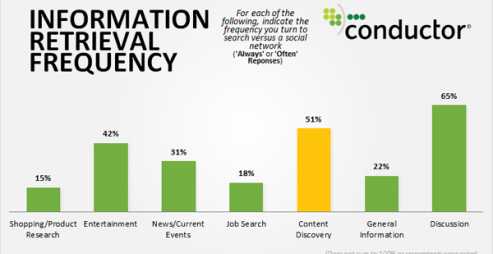
Content discovery is the second most significant use of social networks
The result? Content is now the foundation of SEO and social – the bread to SEO's peanut butter and social's jelly, if you will.
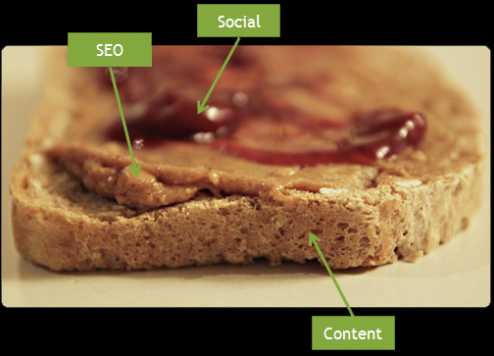
Content has become so central for the online marketer that improving on their content development strategy is their number one goal in the next 12 months:
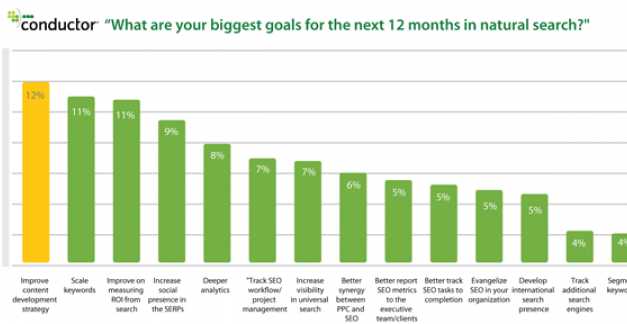
The Brand as a Publisher
All these changes can be summarized with a single phrase – one that we have heard echoed repeatedly over the last several months: the "brand as a publisher."
But what does that really mean? What does it really take for a brand to transition into a successful publisher?
"Provide value to your customers. Be helpful," according to Mike Volpe, the CMO of HubSpot. "Become the best publication and information source in your industry. This is the core of inbound marketing."
In other words, the question the modern brand owner must have an answer to is: How are you adding genuine value to your audience?
Another way of putting this is that the content paradigm has shifted in substantial ways: (Each of the below could be an article unto themselves.)
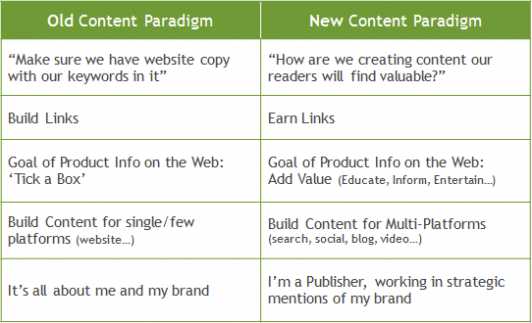
So we've established that brands are now publishers, and if they expect to generate real results – links, shares and community engagement – they'd better have a good answer to the question, how am I adding genuine value?
By now, some may be thinking “I get that as a brand I am now a publisher. But I'm not having luck consistently producing awesome content.”
Great Content Requires Active Ideation
The reason some might not be having the success they'd like to see, is because of an "ideation significance mismatch."
Most content creators think about the content creation process like this:
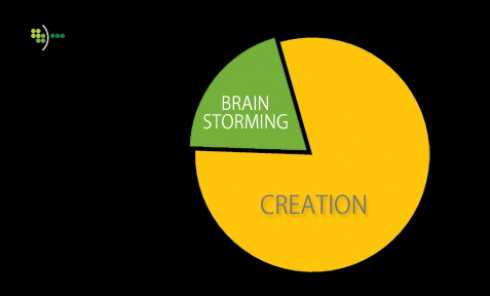
In this view, brainstorming is a static event confined to the start of the process, and it represents a small portion relative to actually creating the content – both in mindshare and time allocation.
We spend a bit of time coming up with what we hope will be a winning idea, and then spend the majority of the time creating and promoting. The result is often neat-looking infographics that no one is really interested in, or sweet social media campaigns that are the "lipstick on the pig" of mehcontent.
To consistently and repeatedly create awesome content, brainstorming must receive greater emphasis in the process, with content creators spending more time up front building great ideas, and also ideating throughout the development process so as to tune and refine the idea:
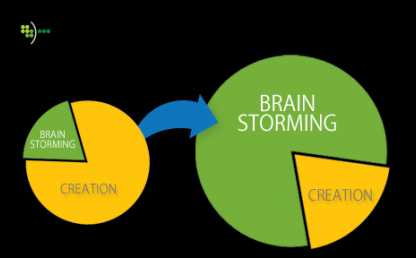
If we're being honest with ourselves, we know that the arrow will only fly as straight and true as the time and effort we spend aiming it downrange.
Recently, Mike King at iAcquire told me that his team has a standing 30 minute brainstorming session every single day. Team members whose primary job responsibility may not be content creation participate, and it is a true democracy in that the best idea wins.
Enable Constant Ideation in Your Content Process
For your brand to truly become a successful publisher and reap the traffic, sales, and brand building benefits, ideation must become culturally embedded in your organization and receive the proper attention it requires in the content creation process.
Trying to produce great content without brainstorming is like trying to grow crops without water. You've got to nourish your ideas or they won't grow and produce fruit.
Wherever you are as a content creator, take a moment to take a step back and honestly ask the question “How am I adding genuine value to my audience?” Whatever your answer, consider if ramping up the emphasis you give to brainstorming could help you to produce dynamite content your audience will engage with, link to, and share.
original source: http://searchenginewatch.com

